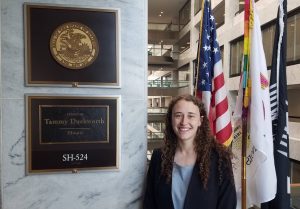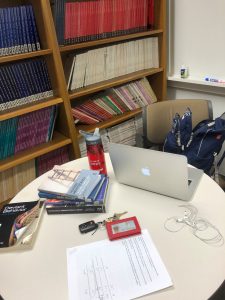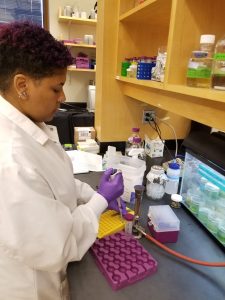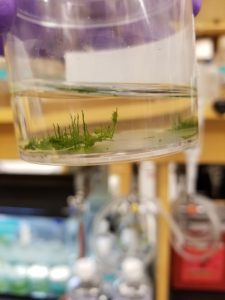Name: Bethany Mathews
Class Year: 2020
Major: Spanish/Independent Creative Writing
Hometown: Bristow, Va.
Internship Organization: 826DC
Job Title: Educational Programming Intern
Location: Washington, D.C.
This summer, I am working with the writing-based arts non-profit 826DC. This organization covers everything from after-school tutoring programs to summer camp writing workshops to full-blown novel production courses. It is all free, and it is all for the youth of the D.C. area.
When I first came to Bryn Mawr, I had known my whole life that I wanted to study creative writing. What I didn’t know was that fulfilling my language requirement would lead to such a passion for studying the Spanish language that I would major in it as well. Of course, this area of focus led to the question, not just from parents and advisors, but from myself as well, “What do you plan on doing with this?” How would my majors prepare me for my future? I began thinking about the things that I enjoyed that were related to both of these fields, and it hit me like an epiphany that I wanted to use my creative writing to show the arts to youth that would need them, and that my knowledge in Spanish would help to bolster my desire to increase the accessibility of the arts.
In high school, I had to drive an hour each way to be able to study creative writing, and I feel very strongly that the arts are a life-changing tool that should be available to everyone. Thus, I sought out work with 826DC.
Since beginning my internship four weeks ago, I have created a library system for our students so that they can continue reading outside of our programs. I have taken stories from the margins of notebook paper and formed fully designed, printed, and bound books with my own two hands. I have gone out into the community and used my Spanish to explain our opportunities to people who may not have had the chance to know about them otherwise.
This week, I will get to bring printed books to the classrooms of second- and ninth-graders and celebrate their accomplishments with them. In a few weeks, I will lead workshops based in creative solutions to environmental issues with sixth-graders, both in English and Spanish. I am doing what I have always wanted to do. Nevertheless, it cannot be said that working in an area I am passionate about has not had its sacrifices. I have lived 30 minutes from D.C. the majority of my life, but between traffic and using public transport, my commute more often than not becomes a two-hour endeavor. On a larger scale, I know this is not going to be sustainable, and it is causing me to give greater thought to where I will live post-Bryn Mawr and how I will handle city life, as this is where most arts nonprofits are centered. But for now, for the next eight weeks or so, I am taking it as time to think, to read, to listen to news or podcasts and expand my mind. It’s a sacrifice that I’ve decided I’m OK with making for a summer of growth. I’ve wanted to work with 826DC since I found out about it over a year ago, and I’m here fostering creative thinking in youth of all backgrounds. I’m teaching them, and they’re teaching me.




